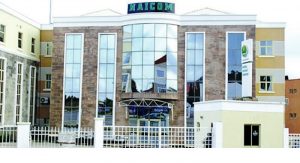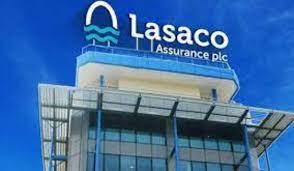
The Asset Management Corporation of Nigeria (AMCON) and Arik Air shareholders have traded fresh accusations over the embattled airline’s debt of over N455 billion.
While AMCON has insisted on recovering the huge sums in acquired loans, the shareholders, led by Sir Johnson Arumemi-Ikhide, have accused the asset managers of falsehood and mismanagement of the carrier.
Recall that Asset Management Corporation of Nigeria (AMCON) took over Arik Air in February 2017 as part of measures to “save” the airline from “imminent collapse”. AMCON had cited gross mismanagement by the owners of Arik and debt of over N300 billion.
After seven years of difficult operations and a long, hard-fought battle with shareholders, AMCON hinted at plans to withdraw from ownership and operations by creating the botched NGEagle Airline exit plan.
The Head of Corporate Communications at AMCON, Jude Nwauzor, told journalists in Lagos that the total debts of Arumemi-Ikhide, the owner of Arik Air, currently stand at N455 billion as of December 31, 2024, in all his investments.
Giving the breakdown of the total debts, Nwauzor alleged that Arik as of December 2024, owed AMCON N227.6 billion; Rockson Engineering, N163.5 billion, while Ojemai Farms owed the corporation another N14 billion, totaling N455 billion. Arumemi-Ikhide owns the three indebted companies.
The spokesperson further said that Arumem-Ikhide, in some of its agreements with AMCON, agreed to the corporation’s debts and signed a payback agreement but failed to honour his words.
AMCON insisted that despite the campaign of calumny against it, it would ensure the debts were recovered and return the companies to profitability.
Nwauzor noted that Arik Air was taken over through due process. He said AMCON had been part of Arik Air since 2011 but was compelled to take over the company in 2017 by appointing a receiver manager after several interventions failed.
He explained that the receiver manager also had the option of either managing or selling off the assets of a debtor company like Arik Air. Still, AMCON decided to keep the airline running through the intervention of the Federal Government.
In reaction, the Arik shareholders denied all wrongdoing. The Media Office spokesperson for Arik shareholders, Godwin Aideloje, said that the airline’s financial state claims were false.
He stated that AMCON’s portrayal of the airline’s financial distress is misleading and dishonest, particularly in handling Arik Air under AMCON’s receivership.
Aideloje said that the airline’s challenges stemmed not from financial mismanagement by the airline itself but from AMCON’s poor handling during the receivership process.
He noted the loss of both aircraft and equipment. “One notable incident involved the seizure of a Boeing 737-800NG in Lithuania in 2023 due to AMCON’s failure to meet the airline’s financial obligations. Another Boeing 737-700NG was abandoned in Malta, where it was later dismantled and sold in the grey market.”
He added that two other aircraft were left in a deteriorated state in Johannesburg and Addis Ababa, with missing engines. These developments further exemplify the disastrous handling of Arik Air under AMCON’s receivership, causing irreparable damage to the airline’s assets and operations.
“AMCON’s mismanagement of Arik Air under AMCON’s receivership has caused immeasurable harm to the airline, its employees, and Nigeria. AMCON must stop its pattern of misinformation and be held accountable for the destruction it has caused.”
The shareholders’ office urged the public to demand transparency in AMCON’s dealings and to hold the corporation responsible for the long-term consequences of its actions.
Aideloje emphasised that this issue transcends Arik Air alone. “It is about the need for proper governance and accountability within AMCON to prevent further damage to Nigeria’s corporate and aviation sectors.
“This is not just about Arik Air; it’s about ensuring that AMCON does not continue to harm Nigeria’s corporate landscape while avoiding accountability,” he said.






